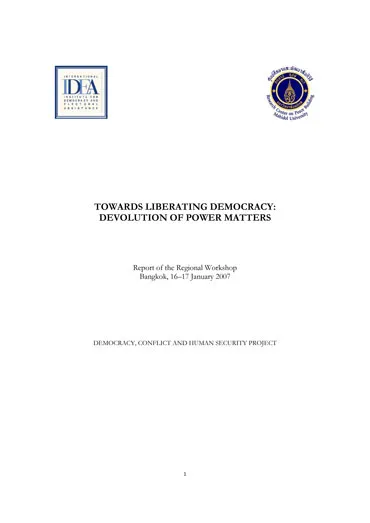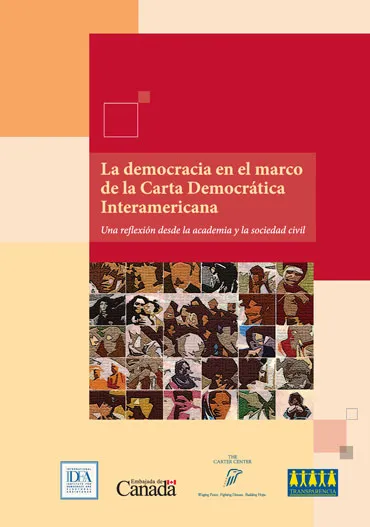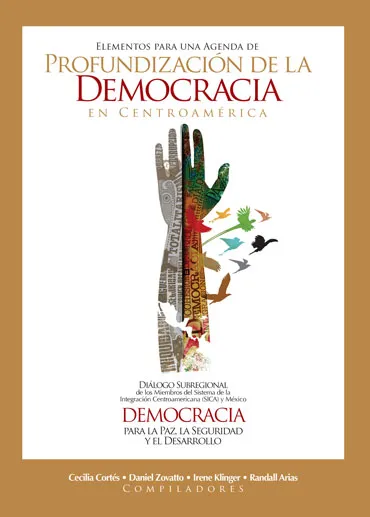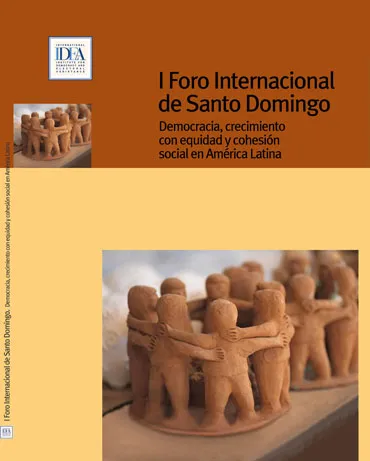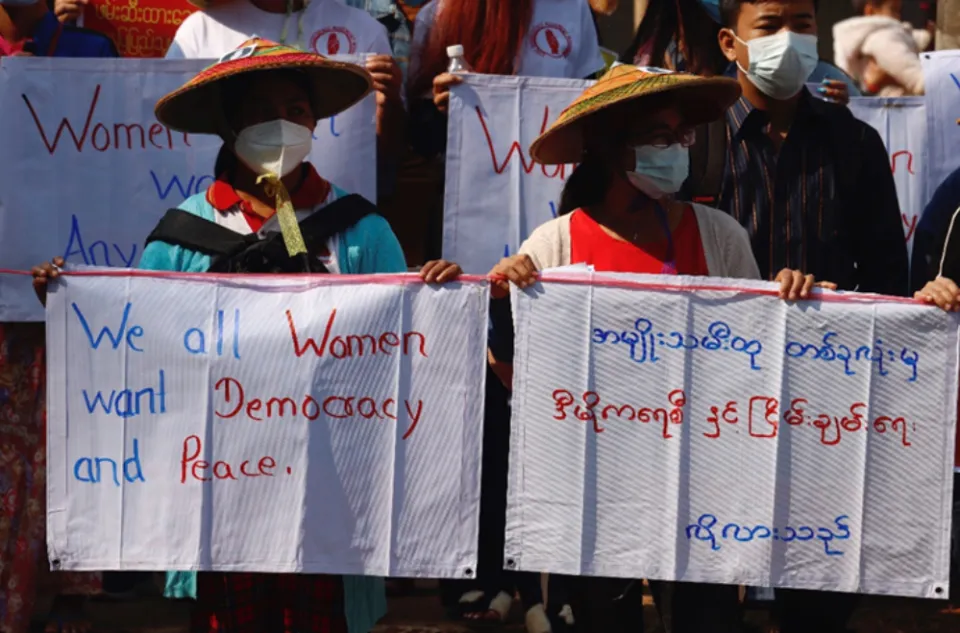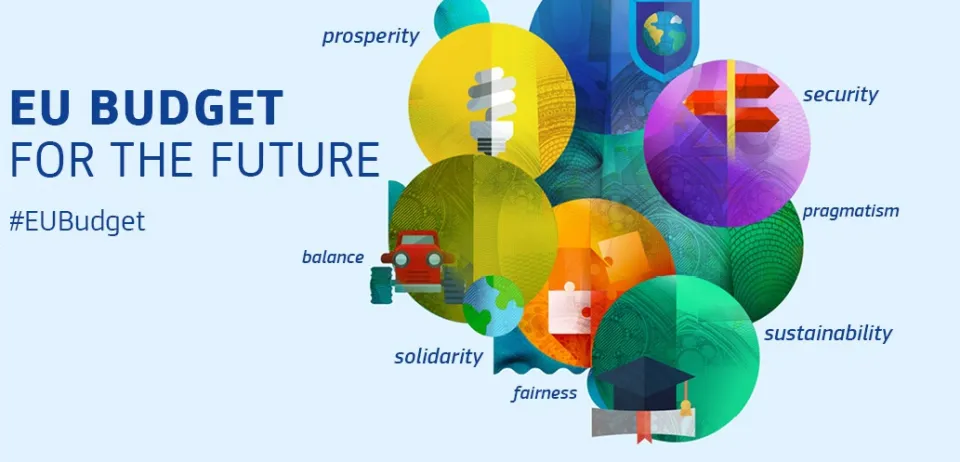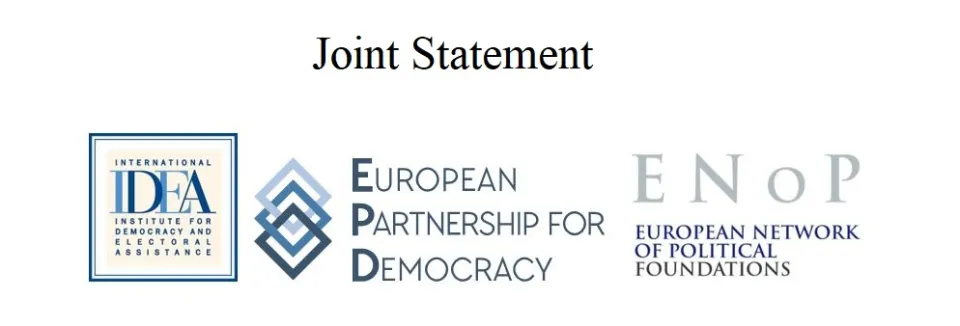Religion, Identity and Democracy - The Arab Spring: Transition to Democracy at a Crossroads
The debate over whether religion has any ‘public’ role in a democratic transition is not limited to the question of electoral and legislative involvement by religious groups.
The common idea about the Arab democracy deficit is that it must have something to do with the rigidity of the way religion functions in the socio-political setting of the region.
Islam and Islamists might jeopardize the transition to democracy, yet answering the riddle of Arab democratic transition does also involve the ‘failed state’ discourse, especially in economic terms. By the same token, it advocates an analysis of the internal political structures of Arab societies.
This Discussion Paper, prepared ahead of the International IDEA Democracy Forum held in Madrid on 28–29 November 2011, explores the public role and the place of religion in shaping the public discourse of politics and democracy. It also highlights the association between religion and socio-political processes in a number of countries, including Turkey, Indonesia and Poland.
Details
Contents
Acronyms
Introduction
1. Religion, identity and politics in the Arab Islamic setting
2. Weak state formation with authoritarian traditions
3. The fragility of nation-building in the Arab world
4. How can religion accommodate democracy?
Epilogue: the Arab spring at a crossroads
References
Give us feedback
Do you have a question or feedback about this publication? Leave us your feedback, and we’ll get back to you
Send feedbackReligion, Identity and Democracy - The Arab Spring: Transition to Democracy at a Crossroads
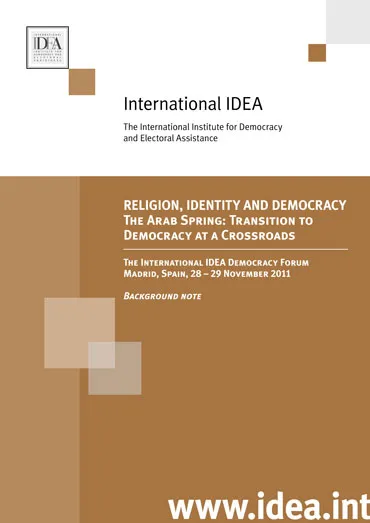
| Total views | 3516 |
|---|---|
| Downloads | 8 |
| Rating |
Give us feedback
Do you have a question or feedback about this publication? Leave us your feedback, and we’ll get back to you
Send feedback